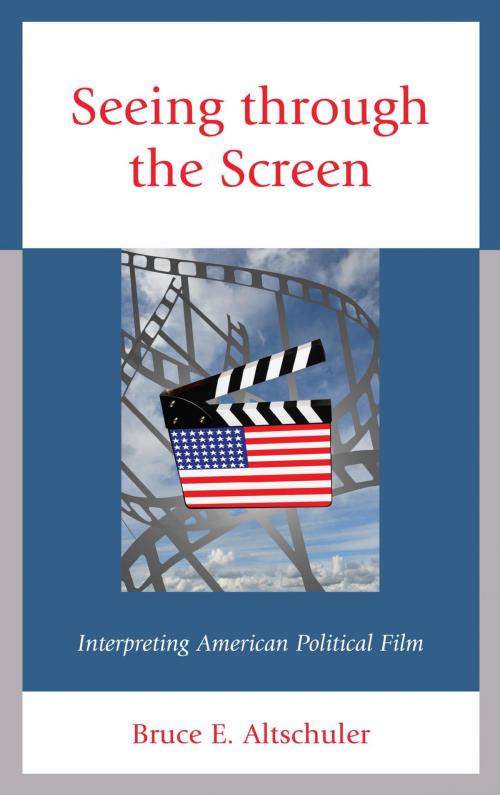Seeing through the Screen
Interpreting American Political Film
Nonfiction, Social & Cultural Studies, Political Science, Politics, History & Theory| Author: | Bruce E. Altschuler | ISBN: | 9781498557498 |
| Publisher: | Lexington Books | Publication: | November 22, 2017 |
| Imprint: | Lexington Books | Language: | English |
| Author: | Bruce E. Altschuler |
| ISBN: | 9781498557498 |
| Publisher: | Lexington Books |
| Publication: | November 22, 2017 |
| Imprint: | Lexington Books |
| Language: | English |
Although films affect and reflect the way Americans look at politics, they have received far less attention than television or newspapers. This is changing, particularly on college campuses, where courses on politics and film are growing in popularity. This book consists of short essays on approximately fifty American political films. It is distinctive in two ways. Firstly, it defines politics broadly enough to include a range of films, not only on obviously political topics such as the presidency, congress, and elections, but also on the media, law and courts, war and peace, and a variety of policy issues. Secondly, it goes beyond plot and dialogue to discuss the language of film, including visual aspects, sound, mise-en-scène, and other ways that films communicate their messages to audiences. Each chapter begins with a brief introduction to the films included. The essays also explain the political context of each film and, when films are based on historical events, discuss the accuracy of their depictions. References to additional sources are included at the end of each essay. This book explores the extent to which films take on the political issues of the day and their influence on public perceptions of politics. Do films support the status quo or do they challenge it?
Although films affect and reflect the way Americans look at politics, they have received far less attention than television or newspapers. This is changing, particularly on college campuses, where courses on politics and film are growing in popularity. This book consists of short essays on approximately fifty American political films. It is distinctive in two ways. Firstly, it defines politics broadly enough to include a range of films, not only on obviously political topics such as the presidency, congress, and elections, but also on the media, law and courts, war and peace, and a variety of policy issues. Secondly, it goes beyond plot and dialogue to discuss the language of film, including visual aspects, sound, mise-en-scène, and other ways that films communicate their messages to audiences. Each chapter begins with a brief introduction to the films included. The essays also explain the political context of each film and, when films are based on historical events, discuss the accuracy of their depictions. References to additional sources are included at the end of each essay. This book explores the extent to which films take on the political issues of the day and their influence on public perceptions of politics. Do films support the status quo or do they challenge it?















